Europe
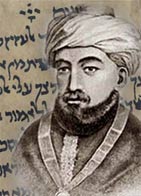 Mediterranean Maimonides
Mediterranean MaimonidesTuesday, January 26, 2010 | Jewish Ideas Daily » Daily Features
Civilizations come and go. Their greatest surviving creations remain. Such is the case with the work of Maimonides (1135–1204), a towering thinker, known to Jewish tradition as "the Great Eagle," who continues to defy easy characterization. Two new biographies depart from past treatments to situate the thought of this master philosopher within the Arabic civilization of his time, and more generally in the prism of the Mediterranean world. To the late scholar Shlomo Dov Goitein, the Mediterranean was a gracious, cross-cultural society that reached its apotheosis in the person of Maimonides' son Abraham, a Jewish devotee of Sufism. To Maimonides' more recent biographers, it...
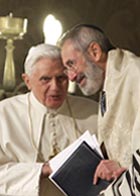 Dona Nobis Pacem
Dona Nobis PacemWednesday, January 20, 2010 | Jewish Ideas Daily » Daily Features
On Sunday, Pope Benedict XVI made his first visit to Rome's synagogue. Clouding the occasion was the feeling among many that the Vatican has yet to make an honest reckoning with its conduct in World War II, a failure epitomized in the process under way to beatify Pius XII. Despite a papal visit to Israel and meetings with Jewish leaders, Benedict has seemed surprisingly maladroit in his dealings with the Jewish community. More is at work here than manners. For the Pope, a serious philosopher and intellectual, the truths of faith and the truths of reason are mutually reinforcing gifts of...
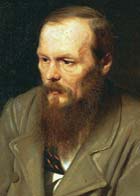 Was Dostoevsky a Scoundrel?
Was Dostoevsky a Scoundrel?The Russian novelist Fyodor Dostoevsky (1821–1881), rightly known as a peerless master of psychological fiction, a fierce anti-socialist polemicist, an anti-romantic with a pulsingly romantic commitment to prophetic religion, and a dramatist of moral ideas without compare since the English poet John Milton, also happened to harbor an ugly fixation on the Jews.
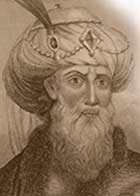 Jewish Wars, Then and Now
Jewish Wars, Then and NowMonday, January 11, 2010 | Jewish Ideas Daily » Daily Features
A masterwork of historical writing, The Jewish Wars by Yosef ben Matityahu, better known by his Roman name of Flavius Josephus (37–ca. 100 C.E.) is a massive and indispensable chronicle of Jewish fortunes from the Hasmonean Revolt in the second century B.C.E. through the destruction of the Temple and the fall of Masada in 73 C.E. It is also the autobiography of an extraordinary and extraordinarily conflicted man. Military leader, historian, biblical interpreter, negotiator, diplomat, neither martyr nor traitor but something in-between, Josephus traversed a route from battlefield commander in the war against Rome to Roman citizen and favored beneficiary of imperial...
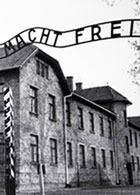 It Isn’t Even Past
It Isn’t Even PastThursday, January 7, 2010 | Jewish Ideas Daily » Daily Features
The recent theft and recovery of the sign Arbeit Macht Frei from the gate of Auschwitz, and the emotional responses elicited by the incident, drive home just how deeply embedded the Holocaust and its imagery remain in contemporary consciousness. No doubt, this world-historical event will long continue to occupy a central place in human memory—along with, unfortunately, whatever permutations, distortions, and outright falsifications time will add to those that have already accumulated in the overheated political rhetoric of our own age. That is why, here and now, as we enter perhaps the final decade of the event's living memory, the issue...
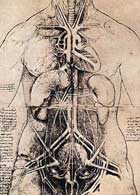 Some Things Never Go Away
Some Things Never Go AwayMonday, January 4, 2010 | Jewish Ideas Daily » Daily Features
Nine years ago, according to recent reports in the Israeli media, the head of the country's leading forensic institute admitted to having transplanted tissues and organs—corneas, skin, heart valves, and bones—from deceased Jews, Palestinians, and foreign workers. It seems that the families of the decedents, while consenting to autopsies, had not consented to transplants. The practice was halted and the physician dismissed from his post. Old news, then. But the exact nature of the doctor's past actions, limited if clearly unethical, was lost in the furor aroused by the surfacing of this old news in late December. In Britain, the Guardian...
 School Daze
School DazeThursday, December 17, 2009 | Jewish Ideas Daily » Daily Features
In a narrow decision by the UK Supreme Court, an Orthodox school in London has been ruled in violation of the country's race-relations law for refusing admission to the son of a non-Orthodox convert. "The judges knew they were handling a hot potato," comments the author of a 2008 report on the future of Jewish schools in the UK, who reads the decision as an open invitation to Parliament to revisit and re-write a defective law. But alarm bells have been ringing loudly in the Jewish community ever since the case started its way through the lower courts; the columnist...
Editors' Picks
Restrictions on the Reformation Dean Phillip Bell, H-Net. The Hebraism which permeated the Reformation did not necessarily translate into increased tolerance of Jews.
A Conspiracy Against Catholicism? Piers Paul Read, Telegraph. When Captain Alfred Dreyfus was unjustly convicted of espionage, many of those who rallied to his defense were not philo-Semites but militant atheists, bent on destroying his Catholic opponents.
Germany's Jewish Voice Ofer Aderet, Haaretz. With an influx of immigrants from Russia and Israel, Germany's Jewish community is the fastest growing in the world. Now a new quarterly heralds the rebirth of Jewish-German culture.
Bringing Darkness to Light Eva Fogelman, Forward. Agnieszka Holland's Oscar-nominated In Darkness is a vivid and nuanced portrayal of Jews escaping wartime Poland and an important testament to the righteousness of their rescuer.
A Stunning Discovery Judy Siegel-Itzkovich, Jerusalem Post. As Holland, among other countries in Europe, seeks to ban Jewish ritual slaughter, new research demonstrating that stunning animals does not minimize their suffering has come not a moment too soon.
A Mind Alone Stefany Anne Golberg, Smart Set. In a collection of the Austrian novelist Joseph Roth's correspondence, there aren't any letters written to his parents, or to those who were perhaps his closest friends. There are no love letters—or any letters at all—to his wife.
Revisiting the Reich Ron Rosenbaum, Smithsonian. William L. Shirer's 1960 history of the Third Reich remains the seminal account of the philosophical roots of Nazism and a stark warning of the dangers of mass political movements.
Changes Fred MacDowell, On the Main Line. On Orthodox liturgical reform during the 19th century, and the case of one British synagogue.
Pound Foolish John Stoehr, Forward. While Pound hailed Hitler, and Gertrude Stein cheered Franco, William Carlos Williams eschewed doctrine and orthodoxy. Herbert Leibowitz's compelling new biography of the modernist poet shows why.
The Philosopher's War Benjamin Wallace-Wells, New York. How Bernard-Henri Lévy managed to goad Sarkozy—and the world—into vanquishing Qaddafi.

